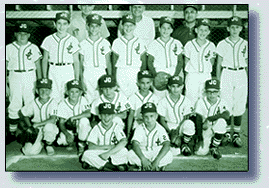
ELH 540 Knowledge, Attitude & Skill Benchmarks
Instructor:
Bob Davison Aviles, Ph.D
Email-- aviles@bradley.edu
Phone--[309-677-3174]
Course Identification:
ELH 540 Human Growth and Development
Course Description:
- Cognitive learning through reading and research into developmental stages: prenatal and infancy, early and middle childhood, adolescence, early adulthood, and late adulthood.
- Cognitive and experiential learning with regard to human growth and development
- Experiential activities emphasizing personal contact and onsite work with people with different ages and stages of physical and psychological development.
Course Objectives:
Upon completion of the course student will expected to demonstrate the
following:
Knowledge:
- Acquire and understanding of the theoretical foundations of human growth and development
- Gain and understanding of the development stages from prenatal throughout the lifespan
- Become familiar with the principles and techniques available for studying human growth and development.
- Understand the role with which inheritance and environment plays in determining the patterns within which the individual's growth and development will take
- Understand the role which the family, school, and peer group play in the physical, psychological, and social development of the individual
Skills:
- Demonstrate the ability to observe and record the activities of adolescents, children and adults while relating the observation to knowledge gained through reading and web class dialogue
- Demonstrate the usefulness of the knowledge of human growth and development with parents, teachers and other groups responsible for welfare of children.
- Demonstrate knowledge of a specific area of human growth and development by researching a specific topic, i.e., child abuse, nutrition, teen pregnancy.
- Analyzing human growth and development issues relevant to the counseling profession.
Values and Attitudes:
- Gain a greater understanding and appreciation for the developmental process which humans go through.
- Become an advocate for the rights of children in the school, home, and community.
- Critically evaluate parenting practices and make recommendations on improving parenting skills.
- Increase awareness of the needs of children and role that counselors playing working with children, parents, and teachers.
Berk, L. E. (2009). Development through the lifespan (5th
ed.).
Course Requirements:
- Reflective Tasks: Each reflective task is worth 10 points for a total of 50 points.
- Team Project: In virtual learning teams,students will post their Reflective Project to the class for a total of10 points
- Exams: Each student will complete a final exam for a total of 20 points.
- Virtual Class Participation: 20 points.
Grades:
- 93 - 100 = A
- 92 - 80 = B
- 79 - 70 = C
- 69 - 60 = D
- 59 - below = F